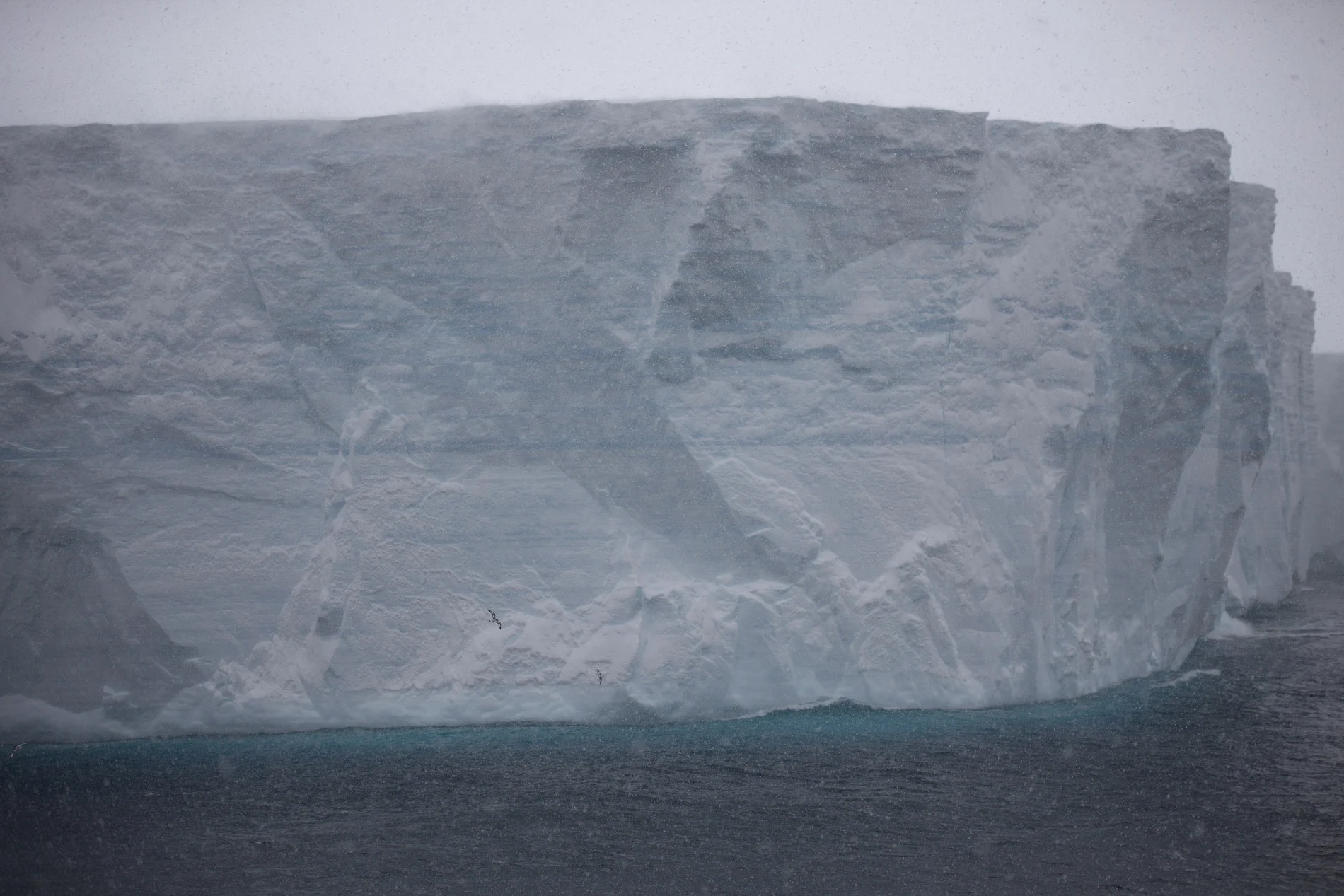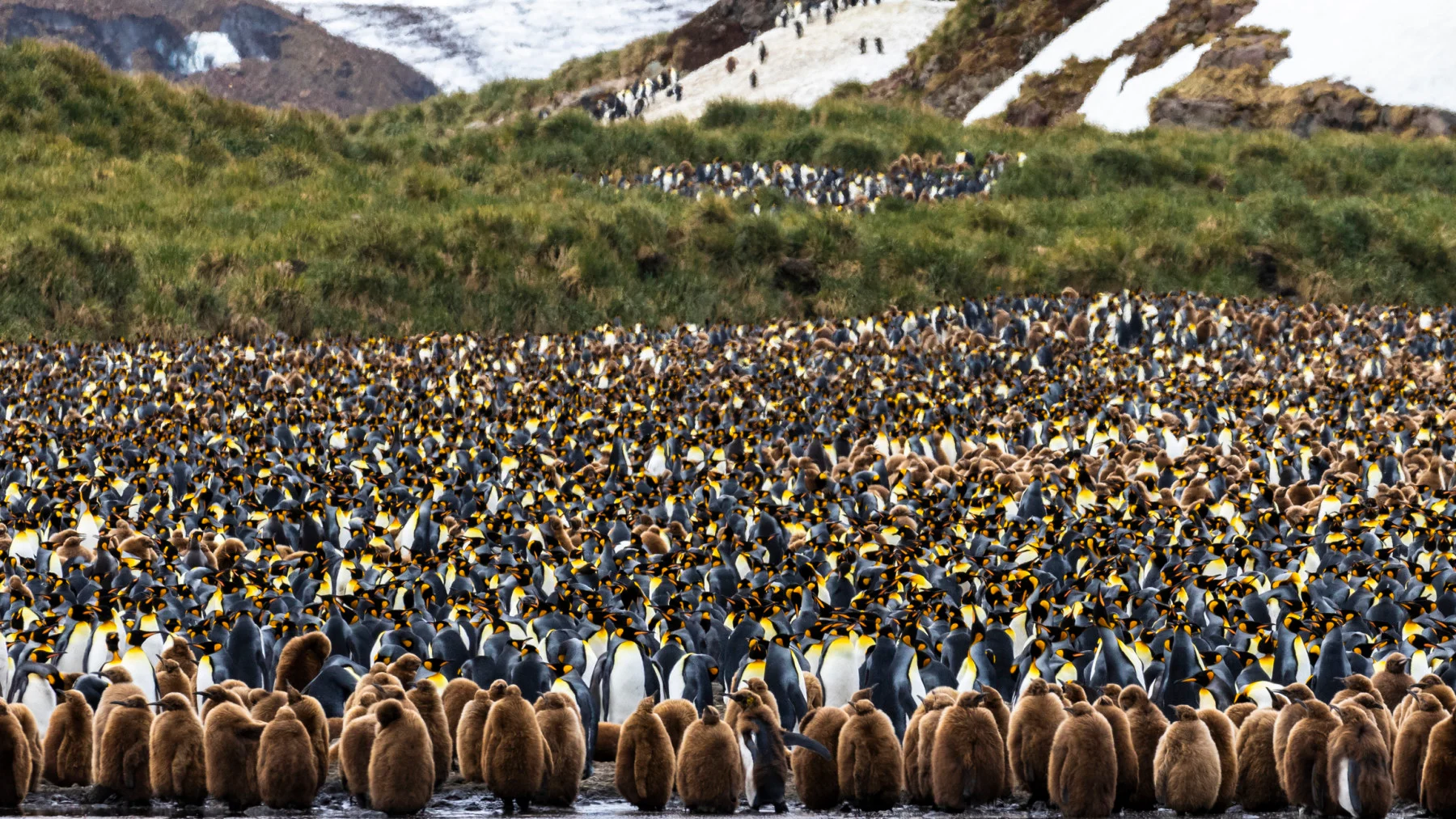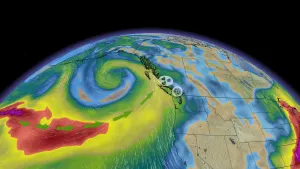
Giant A-68a iceberg released 152 billion tons of freshwater into the ocean
Changing salinity levels and impacts to plant and animal species are some concerns scientists have after the A-68a “megaberg” nearly crashed into South Georgia Island.
The enormous A-68a iceberg was slowly drifting through the Southern Ocean last year, travelling 4,000 km from its home in Antarctica, and at the time was the largest iceberg on the planet. Its demise came after gradually thawing in the tepid sea, a process that released a staggering 152 billion tons of freshwater, and alarmed scientists who predict there could be serious impacts on local ecosystems.
A study, published in Remote Sensing of Environment, says that this “megaberg“ broke off from the Larsen-C Ice Shelf in July 2017 and melted over a three-month period beginning in late 2020, only to vanish altogether in early 2021.

The remainder of A-68a, along with other large pieces that also broke off of A-68, on January 11, 2021 near South Georgia Island. (NASA Earth Observatory image by Lauren Dauphin, using VIIRS data from NASA EOSDIS LANCE, GIBS/Worldview, and the Suomi National Polar-orbiting Partnership)
A-68a was initially 5,719 square kilometres and was the sixth-largest iceberg ever recorded by satellites. The amount of freshwater it released, equivalent to 61 million Olympic-sized swimming pools, eventually engulfed the sub-Antarctic island of South Georgia, which has a delicate ecosystem due to its remote location.
South Georgia is located in one of the world’s largest marine protected areas and is home to millions of king and gentoo penguins, which many scientists feared would be in the path of the megaberg. The flightless birds were spared, but the study says that many plant and animal species could suffer from the diluted ocean water and changing salinity levels.

King Penguin (Aptenodytes patagonicus) colony on Salisbury Plain on South Georgia Island. The King Penguin is the second largest species of penguin, smaller, but somewhat similar in appearance to the emperor penguin. (Janet K Scott/ Moment/ Getty Images)
Some impacts that melting icebergs have on their environments include introducing cold meltwater to comparatively high salinity regions, scraping the seafloor, and destabilizing the parent ice shelf when they break off. Icebergs also transport nutrients, such as iron, in the debris they carry, which can alter numerous oceanic properties and plankton populations.
“This is a huge amount of meltwater, and the next thing we want to learn is whether it had a positive or negative impact on the ecosystem around South Georgia,” said Anne Braakmann-Folgmann, lead author of the study and Ph.D. candidate at the University of Leeds’ School of Earth and Environment, in a press release.
The closest recorded distance A-68a made to South Georgia was 62 km on December 15th, 2020 and the researchers say that although it did not become grounded on the seafloor, other icebergs may do so in the future. Icebergs that drag along the seafloor damage the fauna living there, which can have cascading impacts on animals up the food chain including birds, seals, and whales.
The study says that the path A-68a took is “a common iceberg trajectory” and that “more research should be conducted to study the impact of this alteration on the marine life around South Georgia.”
Thumbnail credit: Brett Monroe Garner/ Moment/ Getty Images











